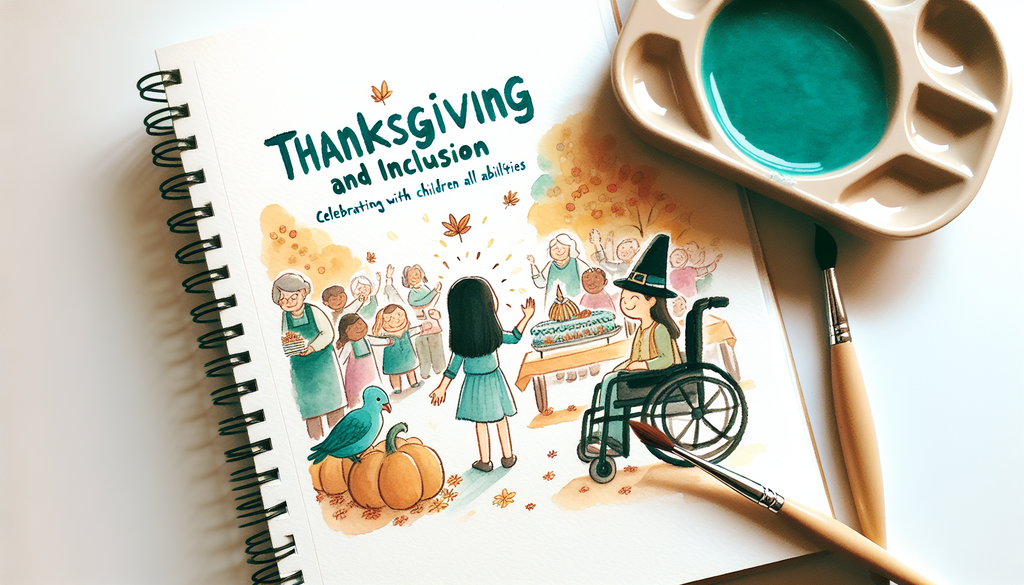Thanksgiving and Inclusion: Celebrating with Children of All Abilities

As we approach the heartwarming season of Thanksgiving, it’s essential to ensure that all children, including those with special needs and those identified as gifted and talented, are included and can enjoy the festivities. This blog post aims to provide parents and caregivers with meaningful tips and techniques to create an inclusive Thanksgiving celebration.
Why Focus on Inclusion?
Children of all abilities should have the opportunity to participate fully in family and community events. When children with disabilities are included, it not only benefits the child but also every family member, enhancing empathy and understanding of diverse learning needs. Particularly for children identified as gifted and talented, these communal activities and interactions can be leveraged as real-world enriching experiences.
Inclusive Celebration Ideas
Here are some ideas on how you can make your Thanksgiving celebration more inclusive:
1. Inclusive Activities
Plan for games and activities that suit a range of abilities. Incorporating games that stimulate the senses can be beneficial to kids with autism, while puzzles can enhance cognition for children with special needs.
2. Adapted Tradition
Modify traditions as needed. For example, if the usual telling of what individuals are thankful for may appear challenging for a child with speech delays, visual aids or picture cards can be used to express their thoughts.
3. Inclusive Environment
The environment plays a crucial part in how comfortable children feel. For children with sensory sensitivities, having a quieter space where they can unwind would be beneficial.
4. Encourage Participation
Everyone has a role to play. Children with physical disabilities can participate in setting the table, while those with social anxiety can help with behind-the-scenes tasks.
Addressing Potential Challenges
Thanksgiving, like many holidays, may pose challenges for children with different abilities. Here are ways to navigate these bumps:
1. Predictability and Preparation
Some children, especially those with autism, may find changes in routine challenging. Using storybooks or social stories, you can guide your child with what to expect during Thanksgiving.
2. Handling Overwhelm
Events like Thanksgiving can be overwhelming for gifted children who have emotional sensitivities. Teach children mindfulness practices to manage stress and regulate their emotions.
3. Dietary Needs
Children with dietary restrictions due to physical or sensory issues may need a customized menu. Involve them in the food preparation process, turning it into a fun learning activity.
Thanksgiving is not just about the bountiful food on the table; it’s the warmth and love shared among family and friends that truly give this holiday its meaning. By taking measures to make the festivities more inclusive, we can ensure that every child can participate and enjoy Thanksgiving.